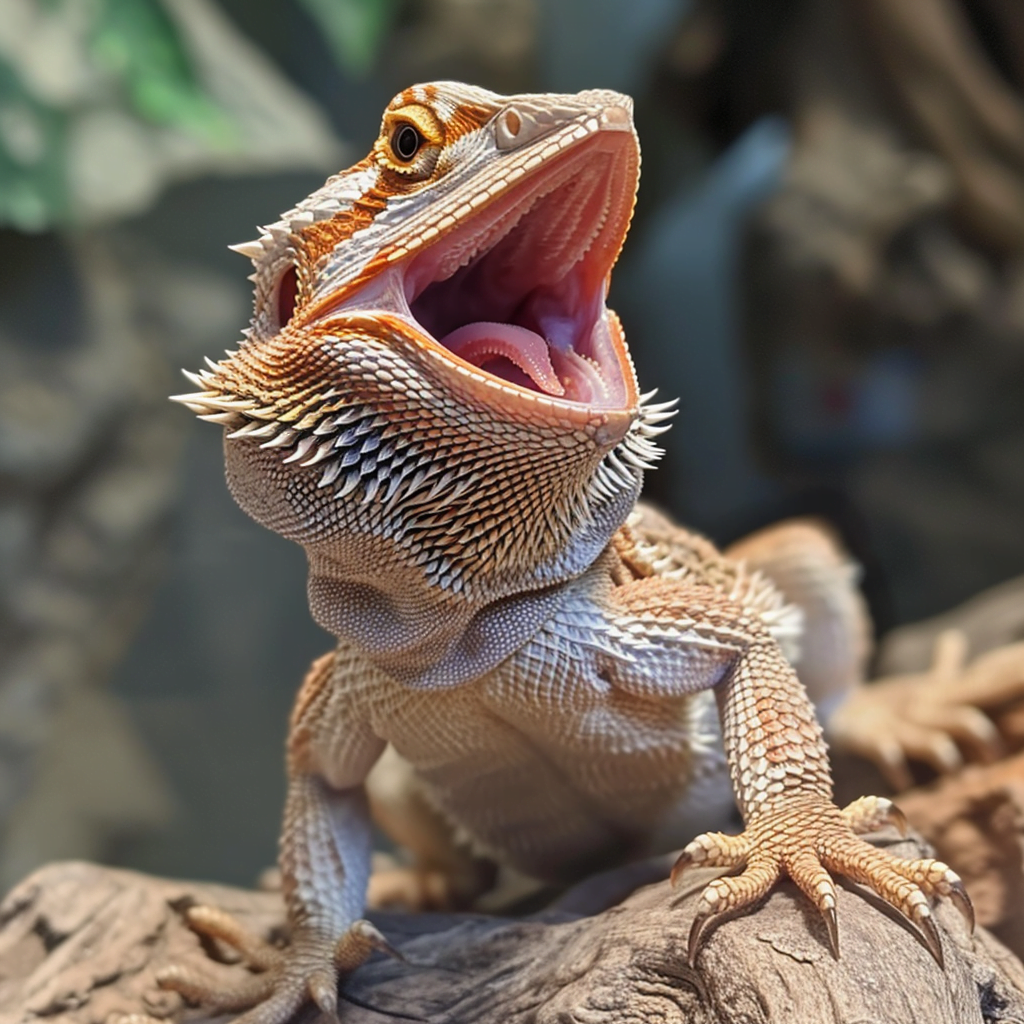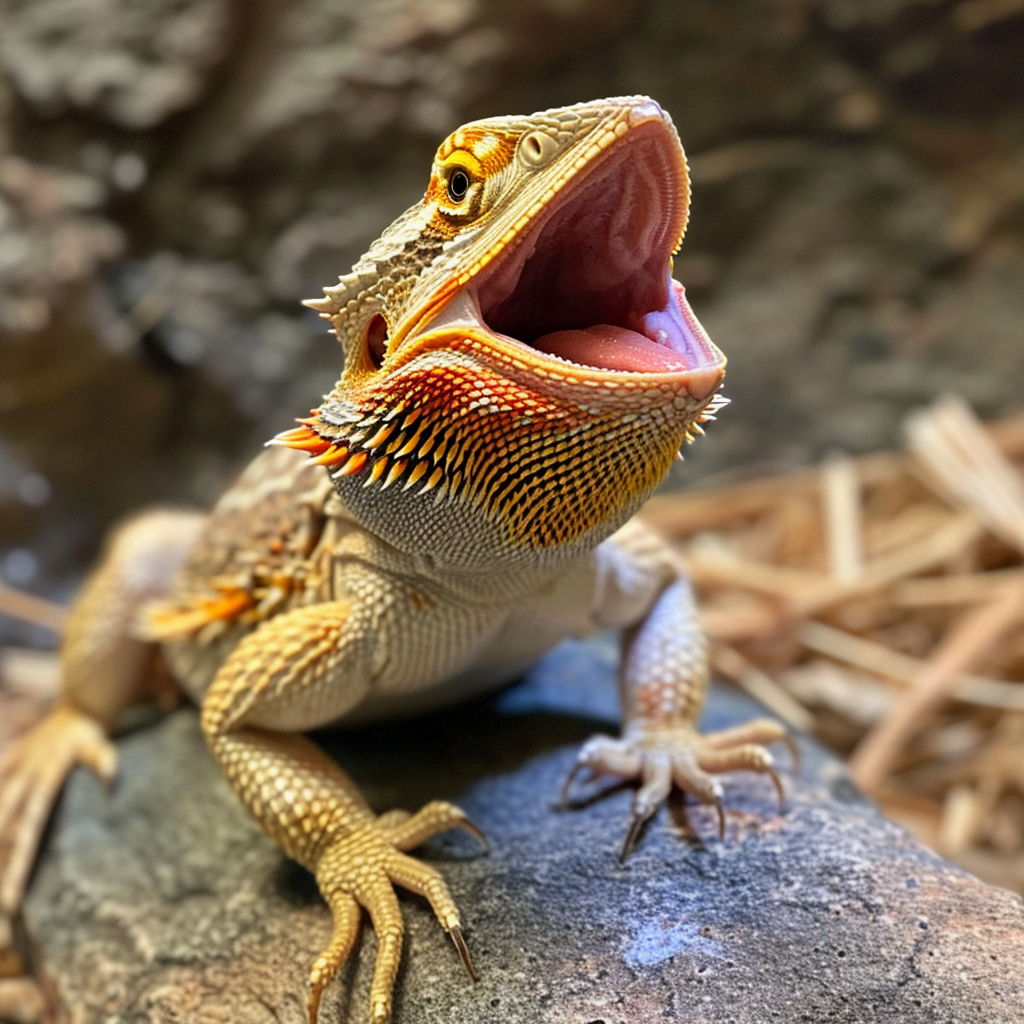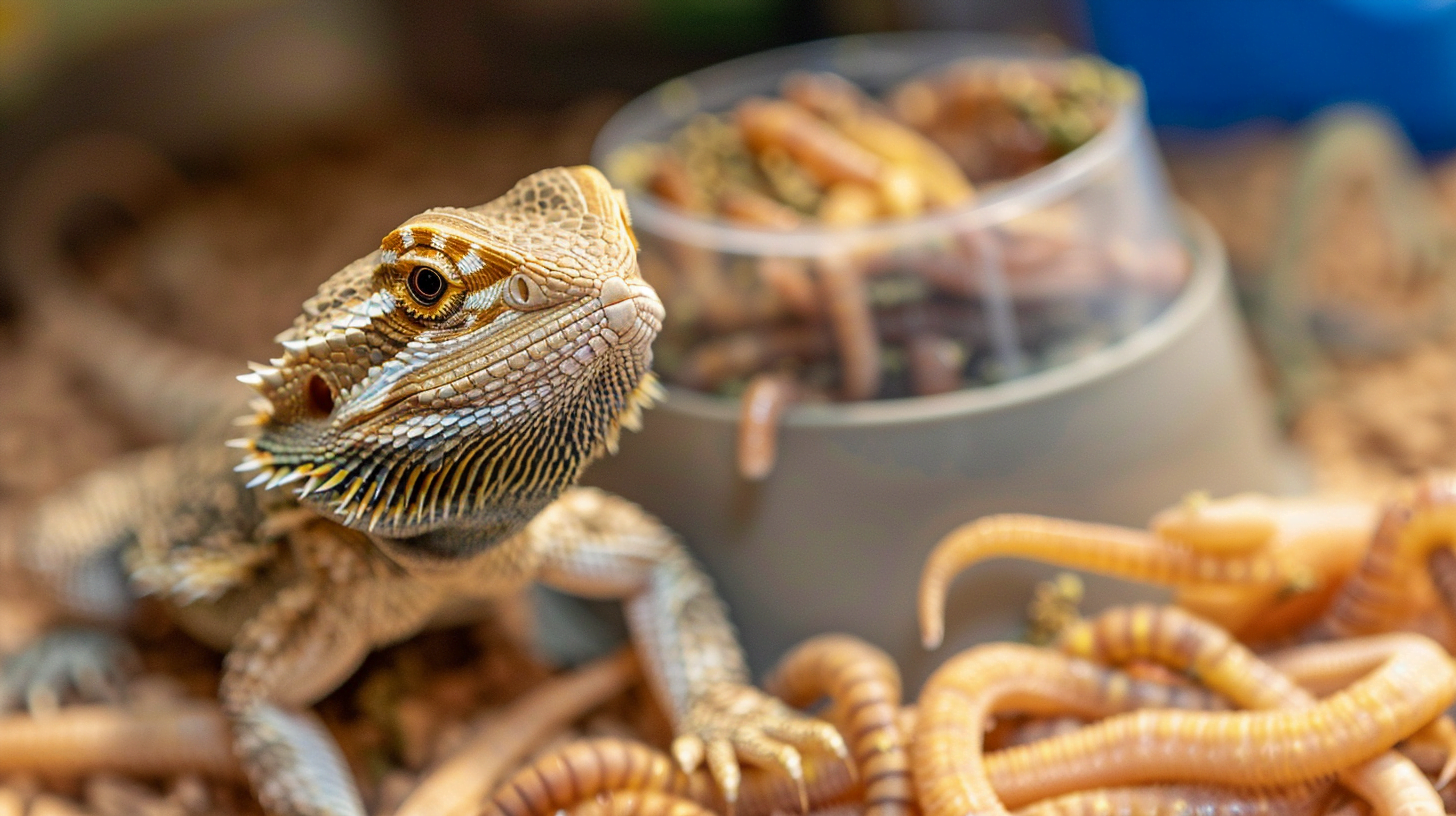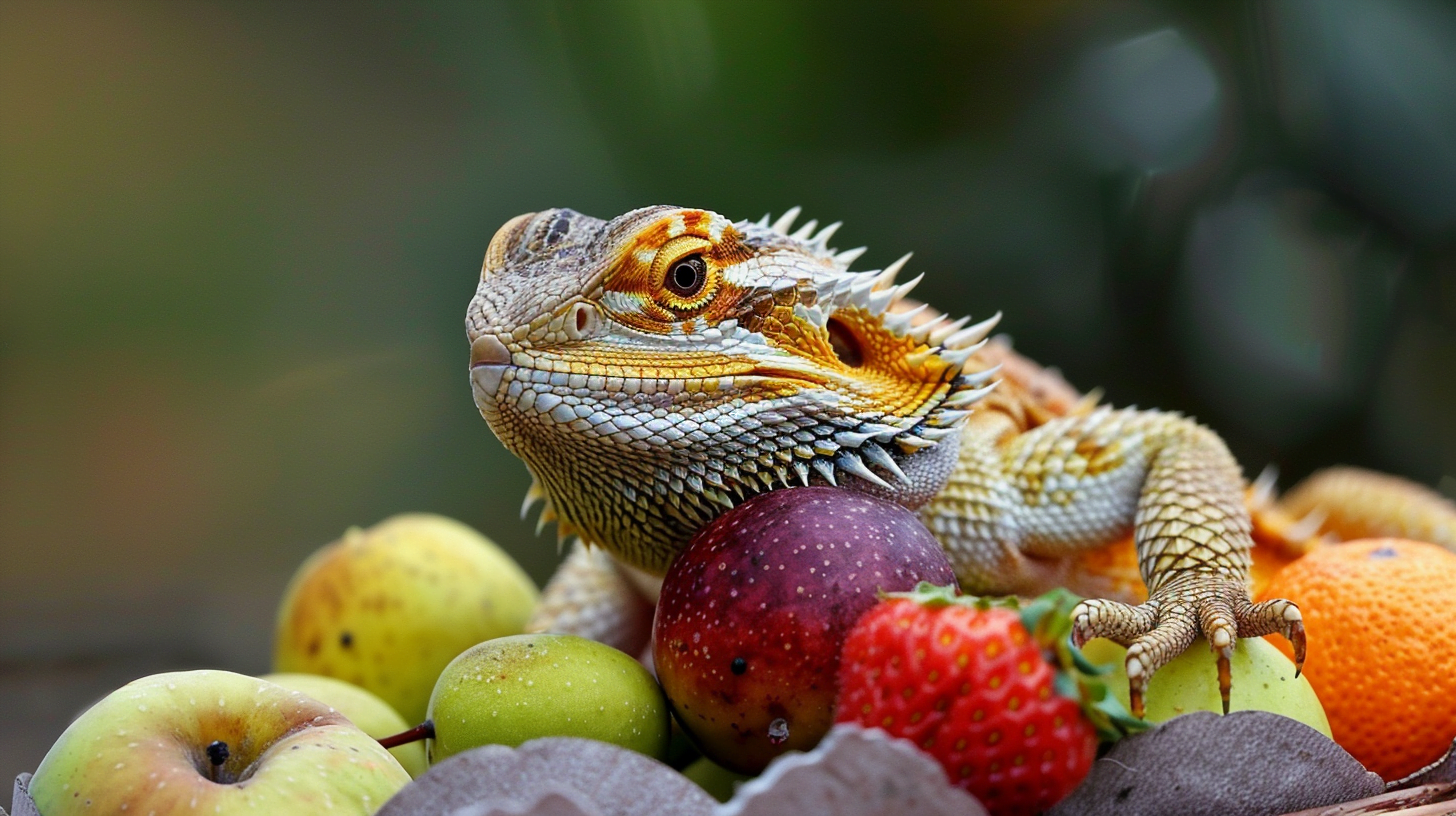Bearded dragons are fascinating creatures, and their behaviors often intrigue their owners. One common behavior that can cause curiosity and concern is when a bearded dragon sits with its mouth open. In the article titled “Why Does My Bearded Dragon Sit With His Mouth Open?” from ReptiFacts, this peculiar behavior is explored in depth. The article sheds light on the various reasons behind this behavior, ranging from natural physiological processes to potential health issues. Whether you’re a seasoned bearded dragon owner or new to the world of these reptiles, this comprehensive guide offers valuable insights into understanding and caring for your scaly companion.
Understanding Why Your Bearded Dragon Gapes His Mouth
Bearded dragons will often sit with their mouths open, which can look concerning to owners. However, in many cases this mouth gaping behavior is completely normal and helps them regulate their body temperature.
Bearded dragons are cold-blooded reptiles that don’t produce their own body heat. Instead, they rely on external heat sources like sunlight or heat lamps to warm their bodies up to their preferred temperature range between 75-105°F. In order to absorb heat when their body is too cold, bearded dragons will frequently open their mouths in an action called “gaping.”
Gaping allows them to raise their body temperature more quickly as the inside of the mouth has a large surface area for heat absorption. When a bearded dragon sits under a heat lamp with his mouth wide open, he is likely just trying to warm up and reach his optimal temperature. This gaping behavior is especially common after waking up from a nighttime sleep when their body temperature drops.
Other Reasons for an Open Mouth
While gaping is the most common explanation for this behavior, there are some other reasons you may catch your bearded dragon sitting around with an open mouth:
- Yawning – Just like other animals, bearded dragons yawn when they are tired. Yawning opens up their airway and allows for more oxygen intake.
- Shedding skin – Bearded dragons will periodically shed the inside lining of their mouth as part of their skin shedding process. They may sit with an open mouth while old skin is coming off.
- Respiratory issues – Respiratory infections or irritation can make it harder for them to breathe through their nose. They may open mouth breathe to compensate.
- About to regurgitate – An open mouth with gulping motions can signal they are about to vomit up their undigested food.
- Stress or fear – Sitting motionless with a gaping mouth can also be a fear response.
Recognizing Signs of Illness or Discomfort
While an open mouth is normal reptile behavior much of the time, it can also be a sign of illness or discomfort if accompanied by other symptoms. Here are some signs to watch out for:
- Labored breathing or wheezing sounds
- Discharge around nose/mouth
- Inflamed gums
- Swollen mouth/jaw
- Loss of appetite
- Lethargy
- Irritation/pawing at mouth
If you notice any of these issues along with a constantly open mouth, it is time to have your bearded dragon looked at by an exotic veterinarian. Mouth rot, respiratory infection, and mouth abscesses are common health issues that require medical treatment.

Checking Your Bearded Dragon’s Health
You can do some basic at-home checks on your bearded dragon to identify any worrying health issues:
- Look in their mouth for any lesions, swelling, cuts, stuck shed skin or other obvious problems. Their teeth and inner mouth should look uniformly pink.
- Listen for any crackling or wheezing in the breathing. Healthy breathing is very quiet.
- Monitor for appetite changes, decreased activity, weight loss, or odd behaviors that can indicate illness.
- Feel gently under their chin, down their neck, and along their back and tail for any lumps or bumps.
- Check for discharge around eyes/nose as this can signal respiratory infections.
Any major deviations from normal require a veterinary visit for diagnosis and treatment.
Getting Veterinary Care
If you suspect your bearded dragon is ill, the next step is to call your exotic vet and schedule an appointment right away. Bringing a fresh fecal sample is helpful for proper testing.
Some treatment options for health issues include:
- Antibiotics for infection
- Antifungal medication for mouth rot
- Surgery to remove abscesses
- Addressing husbandry issues like temperature or diet
- Pain medication if inflammation or injury
With the right veterinary care, most bearded dragons can recover fully from any illness or injury. Home care under the guidance of a vet can also help them recuperate.
Preventing Health Problems
The best way to avoid health issues is by providing proper husbandry and care:
- Correct tank setup – Appropriately sized enclosure, proper heating/lighting, clean substrate
- Proper diet – Healthy feeder insects, leafy greens, vegetables, minimal fruits
- Vitamin supplements – Calcium and vitamin D3 supplementation to prevent metabolic bone disease
- UV lighting – Proper uvb light wattage and distance for basking
- Checkups – Annual health exams to catch any issues early
With proper environment, nutrition and preventative care, your bearded dragon is far less likely to develop illnesses related to husbandry deficiencies. Pay attention to their behaviors and act quickly at any signs of health issues.
Understanding Normal Bearded Dragon Behavior
In conclusion, sitting with an open mouth is quite normal for a bearded dragon much of the time. It can simply indicate they are regulating their body temperature or yawning. But abnormal or excessive open mouth behavior, especially combined with other symptoms, can signal an illness requiring veterinary attention. Get to know your bearded dragon’s normal patterns and behaviors so you can recognize when something may be wrong. With proper care and monitoring, bearded dragons can live long, healthy lives.




